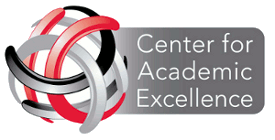Redesigning the Master’s of Nursing: In innovative, collaborative model.
Location
Dolan School of Business Dining Room (104A)
Start Date
30-5-2013 5:15 PM
End Date
30-5-2013 6:30 PM
Session Type
Interactive Session
Description
The recent Institute of Medicine report on the Future of nursing states that Nurses must achieve higher levels of education and training in response to ...increasing [healthcare] demands” (IOM, 2010, p. 2). This statement comes at a pivotal time in nursing education. Nurses interested in pursuing careers in advanced practice are now being educated at the doctoral level through new Doctorate of Nursing Practice (DNP) degree programs. In light of this shift toward doctoral education for advanced practice nurses, master’s programs in nursing are in a tenuous position, and it is questionable whether the remaining master’s level educational programs are meeting the needs of consumers, healthcare institutions and students. Given the great need for clinical leadership in healthcare, it is essential to re-examine master’s nursing education in order to ensure that educational institutions are meeting both the needs of nurses interested in obtaining advanced degrees and the needs of consumers and health care systems. Globally, there is a strong call for developing models of interprofessional education, training and practice. Many academic institutions that educate nurses do not educate other health professionals and therefore, interprofessional education is a unique challenge. Given these challenges, Fairfield University’s School of Nursing redesigned a Nursing Leadership program to allow nursing professionals increased diversity of academic studies and greater exposure to the richness of gradate education throughout the campus. The outcomes of the model will be studies in a triangulated approach which includes a digital portfolio model.
Presenter Bio(s)
Sally Gerard, DNP, RN, CNL, CDE has been a nurse for over 25 years with clinicial expertise in critical care, hospital education and as a Certified Diabetes Educator. She holds a Doctorate of Nursing Practice from Case Western Reserve University in educational leadership and is the track coordinator of the generic master's degree at Fairfield University. In the past 10 years, Dr. Gerard has been focused on healthcare improvement, introducing evidence based practice and promoting nursing research in the acute care setting. She has completed training with the Dartmouth Institutes of Healthcare Improvement and actively supports clinical partners in scholarly activities for practicing nurses.
Redesigning the Master’s of Nursing: In innovative, collaborative model.
Dolan School of Business Dining Room (104A)
The recent Institute of Medicine report on the Future of nursing states that Nurses must achieve higher levels of education and training in response to ...increasing [healthcare] demands” (IOM, 2010, p. 2). This statement comes at a pivotal time in nursing education. Nurses interested in pursuing careers in advanced practice are now being educated at the doctoral level through new Doctorate of Nursing Practice (DNP) degree programs. In light of this shift toward doctoral education for advanced practice nurses, master’s programs in nursing are in a tenuous position, and it is questionable whether the remaining master’s level educational programs are meeting the needs of consumers, healthcare institutions and students. Given the great need for clinical leadership in healthcare, it is essential to re-examine master’s nursing education in order to ensure that educational institutions are meeting both the needs of nurses interested in obtaining advanced degrees and the needs of consumers and health care systems. Globally, there is a strong call for developing models of interprofessional education, training and practice. Many academic institutions that educate nurses do not educate other health professionals and therefore, interprofessional education is a unique challenge. Given these challenges, Fairfield University’s School of Nursing redesigned a Nursing Leadership program to allow nursing professionals increased diversity of academic studies and greater exposure to the richness of gradate education throughout the campus. The outcomes of the model will be studies in a triangulated approach which includes a digital portfolio model.


